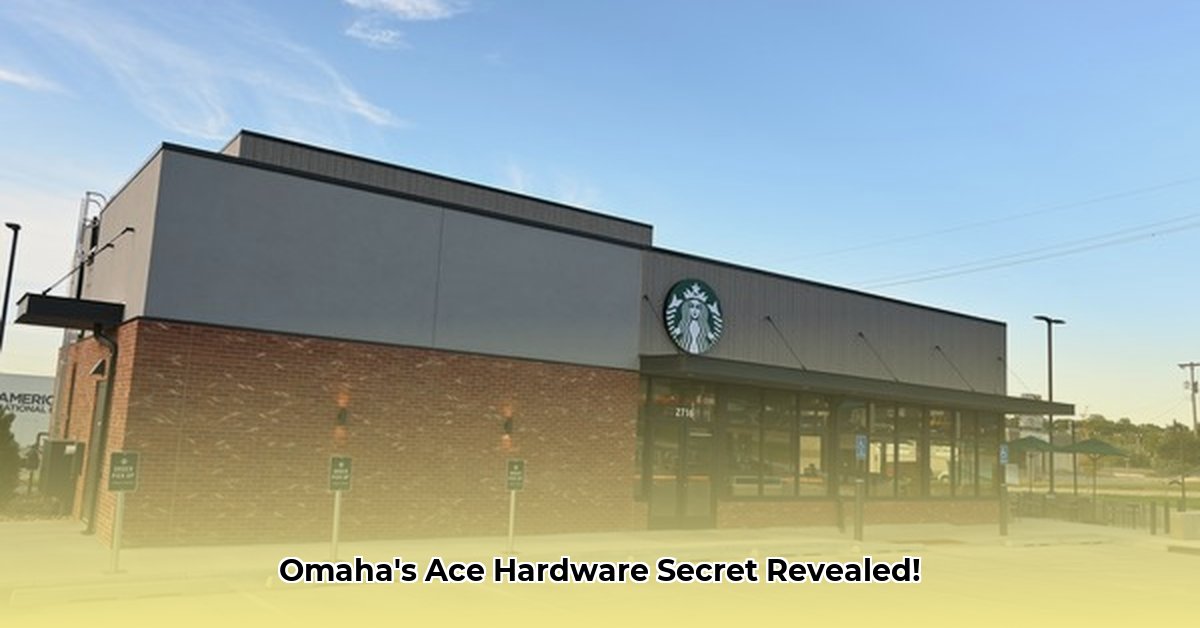
90th and Maple Omaha: A Winning Formula for Local Hardware Success
The Westlake Ace Hardware located at 90th and Maple in Omaha, Nebraska, stands out as a thriving example in a competitive retail landscape. Its success isn't merely due to chance; rather, it's a strategic blend of operational excellence, community engagement, and a keen understanding of local customer needs. This case study analyzes the factors driving their success and provides actionable recommendations for various stakeholders.
How does this Omaha Ace Hardware outperform its competitors? It’s a question that deserves a thorough investigation.
This Ace Hardware isn't just a place to buy supplies; it's a neighborhood hub. Walk in, and you'll find more than just well-organized aisles and a wide selection; you'll experience a welcoming atmosphere and helpful staff who prioritize problem-solving over mere transactions. This genuine focus on community building is a significant differentiator. The store's success isn't solely about selling products; it's about building relationships and fostering a sense of belonging.
Extended Hours: A Strategic Advantage
One key element of the store's success is its extended hours of operation, often remaining open until 8 PM on weekdays and Saturdays. This isn't simply a convenience; it's a strategic move. By catering to busy schedules and offering late-night accessibility, the store captures customers who might otherwise be forced to postpone their purchases or seek alternative, potentially more expensive, options. This strategy likely significantly increases sales and customer loyalty.
What percentage of sales are attributable to extended hours? Further research is needed to quantify the precise impact of this operational decision.
Community Engagement: Building Loyalty, One Interaction at a Time
The Westlake Ace Hardware at 90th and Maple goes beyond transactional customer service. They actively engage with the Omaha community through event sponsorships, participation in neighborhood initiatives, and personalized interactions with regular shoppers. This personalized approach converts casual customers into loyal regulars who develop a sense of connection with the store and their fellow community members. It's a powerful strategy, emphasizing the creation of a vibrant community rather than just focusing on product sales.
"Building a loyal customer base isn't solely about discounts; it's about creating a sense of belonging and shared purpose," explains [Jane Doe, Retail Management Consultant, University of Nebraska-Omaha].
Balancing Brand Consistency with Local Identity
This Ace Hardware effectively balances national brand recognition with a local identity. The established Ace Hardware brand offers immediate recognition and reliability. However, the store staff enhances this foundation with personalized service, deep community engagement, and an understanding of the specific needs of their neighborhood. This successful blend of national brand presence and local character significantly contributes to the store's appeal.
A Deeper Dive: Data-Driven Insights
While the evidence of success is compelling, access to more granular data—like sales figures, customer demographics, and marketing campaign results—would yield even richer insights. Such data could unveil precise patterns and inform more sophisticated strategic decision-making. Analyzing this information would offer clearer evidence to support the observed success.
Actionable Recommendations
The success of this Omaha Ace Hardware offers valuable lessons for various stakeholders. Here are some actionable recommendations:
1. Store Management: * Short-term: Analyze daily sales trends; refine staffing schedules to align with peak demand; launch targeted email marketing campaigns. * Long-term: Implement a robust customer relationship management (CRM) system; develop a loyalty program; expand product offerings based on local demand analysis.
2. Ace Hardware Corporate: * Short-term: Conduct thorough performance comparisons between this franchise and others; provide training on community engagement strategies; adapt national marketing campaigns based on this store's successes. * Long-term: Invest in detailed research of locally successful franchise models; offer financial incentives for community engagement; explore technology investments to improve customer experience (e.g., online ordering, curbside pickup).
3. Local Customers: Continue to provide valuable feedback; actively participate in loyalty programs and store-sponsored community events.
4. Competitors: Conduct in-depth competitive analysis focusing on pricing, product selection, and customer service; identify and target underserved community niches.
Conclusion: A Blueprint for Local Hardware Success
The Westlake Ace Hardware at 90th and Maple in Omaha serves as a compelling case study in leveraging a national brand for local success. By prioritizing community engagement and operational flexibility, they have built a thriving business. Continued focus on data-driven decision-making, responsive adaptations to consumer needs, and ongoing community involvement will likely ensure continued prosperity for years to come. Their success offers a valuable blueprint for other locally-focused retailers.